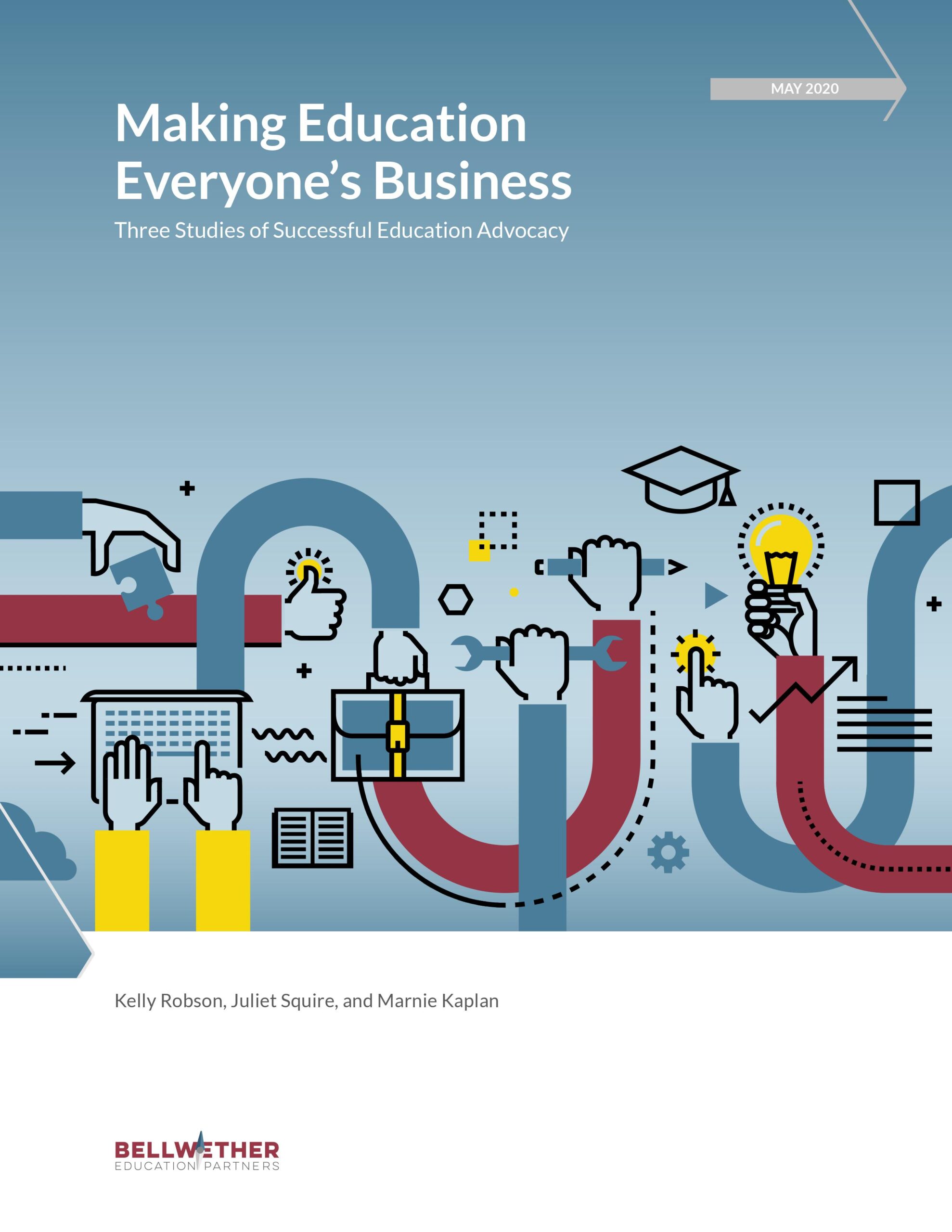The business and education sectors are feeling the effects of the coronavirus pandemic acutely. Among small businesses, 75% have applied for emergency relief from the federal government and nearly three in ten have reduced staff. About half report having less than one month cash on hand. At the same time, tens of thousands of schools are closed and uneven transitions to distance education suggest significant adverse effects on student learning.
That’s why, even as the business community struggles to keep its head above water, business leaders must continue to invest time and energy into supporting the best possible paths forward for students — our nation’s future employees, professionals, and entrepreneurs.
A strong education system is key to economic growth, something that will be a priority after this crisis. In addition to the vast research linking a population’s education to economic prosperity, it’s impossible to miss how the unemployment rate for high-school graduates is currently at least twice that for those who hold at least a bachelor’s degree. As policymakers think about economic recovery in the years ahead, they will benefit from the business community’s vantage point on the skills and knowledge students need to be successful.
National business groups like the U.S. Chamber of Commerce include education as a policy priority; other business organizations, like America Succeeds, focus exclusively on education issues. In recent years, these and other business efforts have lent their voice to the drive toward providing strong options for students after high school, including apprenticeships and industry certifications alongside four-year college degrees. But business associations have a long track record of engaging in essential education issues; they were an important part of the coalition advancing higher standards and accountability in the 1990s, which helped shine a light on vast inequities in the education system and created urgency for reform.
Today, with the learning trajectories of students in turmoil, the business community again has a stake in charting the path forward. Business advocacy organizations can help create space for innovative thinking and drive policy proposals for resources and programs tailored to the needs of their state. And they can impart skills, for instance convening school leaders who benefit from management training. In Washington State, Partnership for Learning and the Washington Roundtable have provided leadership training to high school principals.
The business community can also support the continuation of learning for high school students through apprenticeships and other work-based learning experiences, since the school year has been disrupted and postsecondary opportunities have been clouded by economic uncertainty. Colorado Succeeds, an affiliate of America Succeeds, helped establish a state policy that provides school districts and charter schools up to $1,000 per student who completes a qualified industry credential program, work-based learning experience, or relevant coursework.
Of course the business community shouldn’t be the sole voice in education, especially since the purpose of schooling is not just about ensuring future economic prosperity. We also rely on schools to shape upstanding community members and informed citizens. But the business community absolutely has interests aligned to the success of today’s students — its perspectives are legitimate and often valuable.
Educators and policymakers should ensure it has a seat at the table.
